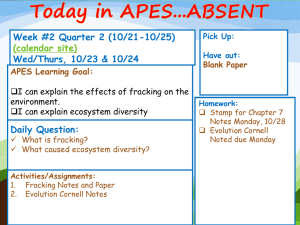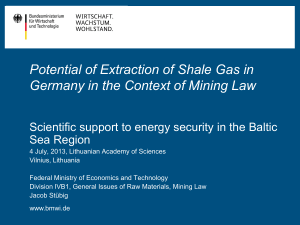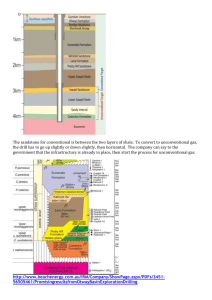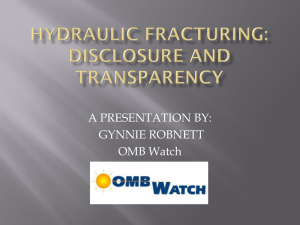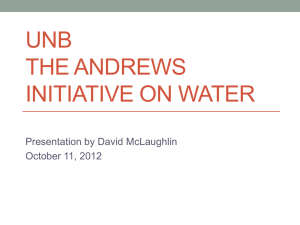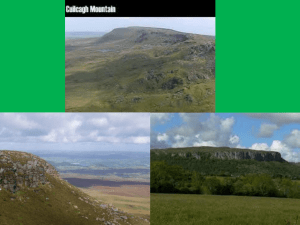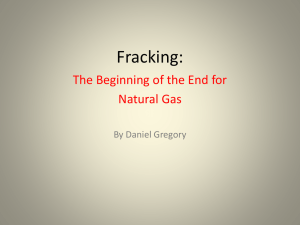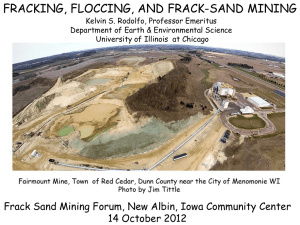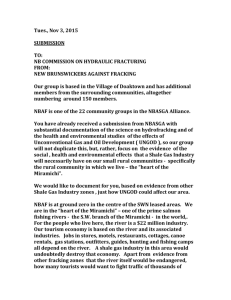All Fracked Up
advertisement
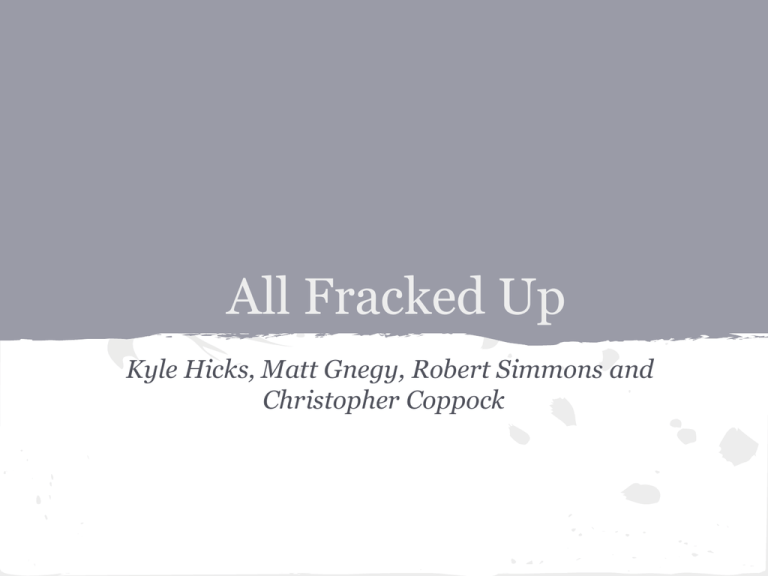
All Fracked Up Kyle Hicks, Matt Gnegy, Robert Simmons and Christopher Coppock What is fracking? - Hydraulic fracturing is the process of extracting natural gas or oil from shale rock formations. - While modern fracking got its start in the late 1940s, in last two decades technology has made fracking the premiere method of accessing natural gas. How does fracking work? - A natural gas well is drilled vertically, like a standard well, to a depth of around 6,000 – 10,000 ft. - Monitoring devices above the ground will indicate when the wellbore has reached the level of shale rock - At that point, the drilling will turn horizontal and the wellbore will parallel the shale formation - The wellbore is then cased and sealed with cement to prevent the fracking fluids from leaking into the groundwater - A perforating gun is then lowered into the wellbore and an electrical charge creates fractures in the wellbore and surrounding formation - Highly pressurized fracking fluid is then pumped into the wellbore creating fractures throughout the shale formation - The fracking fluid is mostly water mixed with sand but can be mixed with hundreds of chemicals used to dissolve rocks or kill bacteria in the water - The liquid and gas is then pumped back to the surface where they are mechanically separated - The gas is then trucked to locations where it is cleaned, purified and sold to distribution companies West Coast Fracking - Only viable in California and mostly oil shale -15 billion barrels of crude oil potentially in Monterey Shale Baldwin Hills - CA -1200 acre fracking site in Ingelwood California -Population of 32,000 in a 3 square mile area -5 miles from USC -Has average between 2.5-3.1 million barrels of oil for the past ten years Study on Oil Field -Year long study done by Daniel Tormey of Cardno Entrix -Study found that there are no effects on groundwater or community health from fracking. -Hard data only indicates residents within 1/2 mile are exposed to immediate health risks - Very limited research on long term risks/wider impacts Public Reaction -The community has been critical of report and question its legitimacy -Claim that reviewers of study were tied to closely with energy company Lawsuit -No regulation of fracking in California -Environmental group, Earth Justice, is suing state regulators over this practice -Hoping to force regulation on fracking East Coast Fracking - Marcellus Shale Deposits is utilized - Largely gas shale - Concentrated in Western Pennsylvania, West Virginia, and Ohio. - Major industry Fracking Sites Hopewell Township - PA - 400k gallon wastewater holding tank exploded in March 2010 - Company fined less than $100k by DEP for contaminating an entire watershed - Atlas had profits exceeding $150m - Residents smelled gas in days prior to explosion - Unable to contact DEP to report smell Hopewell Safety Violations - 16p PDF documenting violations leading up to explosion - Ranging from: - failure to contain erosion - deliberate discharging of fuel into the ground - spilling 500+ gallons of hydrochloric acid onto the ground near a site Atlas Holding Tank Explosion
